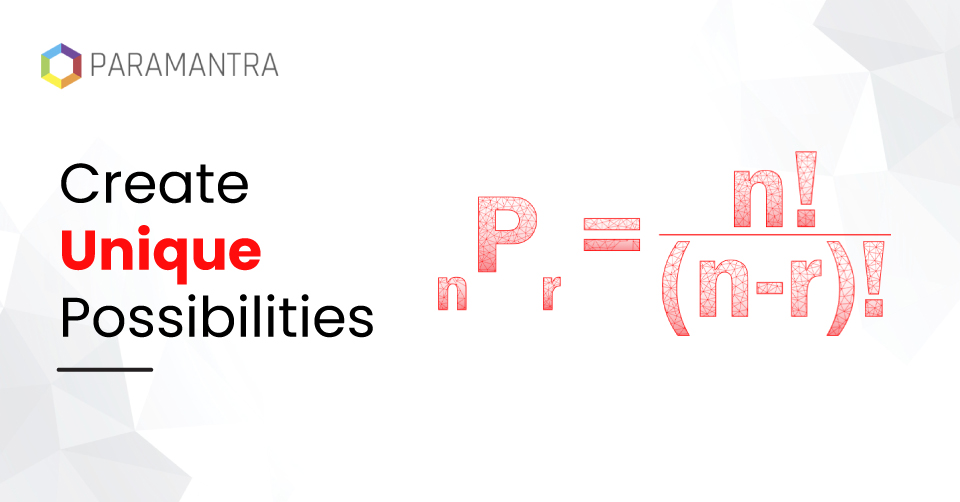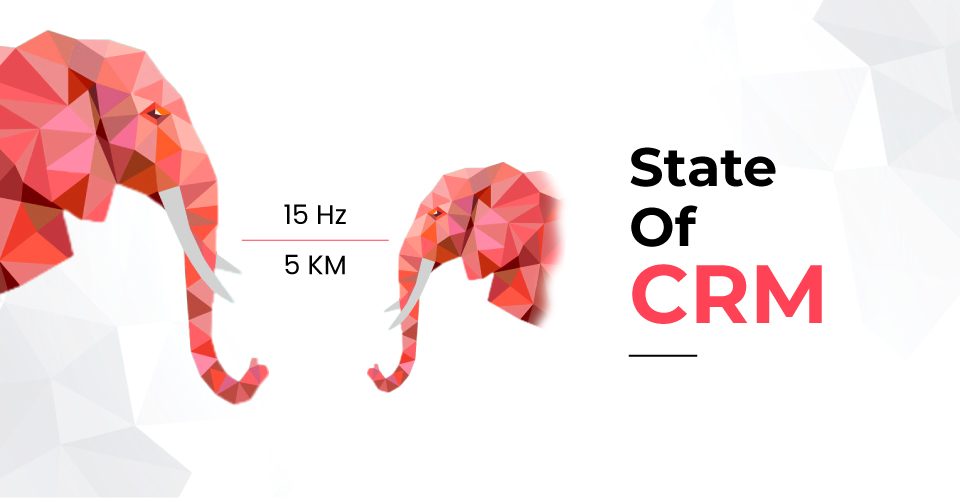Our ability to conceive product-based solutions for our clients is limited by our creativity. However, with the aid of Paramantra, planning and delivering custom orders becomes effortless. Our collaborative solution is centered on the fundamental principles of permutation to create a diverse range of pathways to possible custom offers.
Permutation is a mathematical concept that describes the various ways in which a set of objects can be arranged or ordered. The permutation formula is utilized to determine the total number of feasible ways in which a set of objects can be arranged, provided that each object is distinct, and the order is significant.
The formula for permutation is expressed as:
P (n, r) = n! / (n-r)!
where:
- P (n, r) represents the number of permutations of r objects taken from a set of n distinct objects
- n! represents the factorial of n, which is the product of all positive integers from 1 to n
- (n-r)! represents the factorial of the difference between n and r
To apply the permutation formula, one needs to substitute the corresponding values of n and r into the equation and evaluate the outcome. For instance, if there are 5 distinct objects in a set, and one desires to determine the number of ways they can be arranged in groups of 3, the following formula is used:
P (5, 3) = 5! / (5-3)! = 5! / 2! = 60
This implies that there are a total of 60 feasible permutations of 3 objects taken from a collection of 5 distinct objects.
Permutations and combinations have been studied for centuries and have been refined by many prominent mathematicians. Blaise Pascal introduced a method for calculating them in 1654, using Pascal’s triangle. Abraham de Moivre presented the modern form of the permutation formula in 1730, which was further refined by other mathematicians such as Leonard Euler and Pierre-Simon Laplace. Today, the permutation formula is a crucial tool in combinatorics, probability theory, and other areas of mathematics and science, and it continues to be studied and applied by mathematicians and researchers worldwide.
There are numerous practical applications of permutations, and a few of them are cited as follows:
- Sports: In many sports, players or teams compete in a tournament or series of games, and the order in which they play can have a significant impact on the outcome. Permutations are used to determine the number of possible match-ups and the scheduling of games.
- Genetics: Permutations are used to study genetic variation and inheritance patterns, which can help to identify the risk factors for certain diseases and develop targeted treatments.
- Combinatorial optimization: Permutations are used to solve problems related to optimization and decision-making in various fields such as logistics, supply chain management, and manufacturing.
- Cryptography: Permutations are used to generate encryption keys and unique passwords for different accounts or devices, which helps to secure information and prevent unauthorized access.
- Web development: Permutations are used to create unique URLs, user IDs, and session IDs in web applications, which helps to prevent identity theft and session hijacking.
- Chemistry: Permutations are used to study the properties and behavior of molecules, including their structure, stability, and reactivity. This information is used in drug discovery, materials science, and other areas of research.
Following are some interesting facts about permutations from our daily lives:
- In the game of chess, there are approximately 10^120 possible positions after just 40 moves each. That’s more than the total number of atoms in the observable universe.
- The number of possible permutations of a standard deck of 52 cards is so large that if you were to shuffle the deck thoroughly and then lay out the cards in a line, the resulting order would almost certainly be one that has never been seen before in the history of playing cards.
- If you randomly shuffle a Rubik’s Cube, there are over 43 quintillion possible permutations. That’s 43 followed by 18 zeros.



